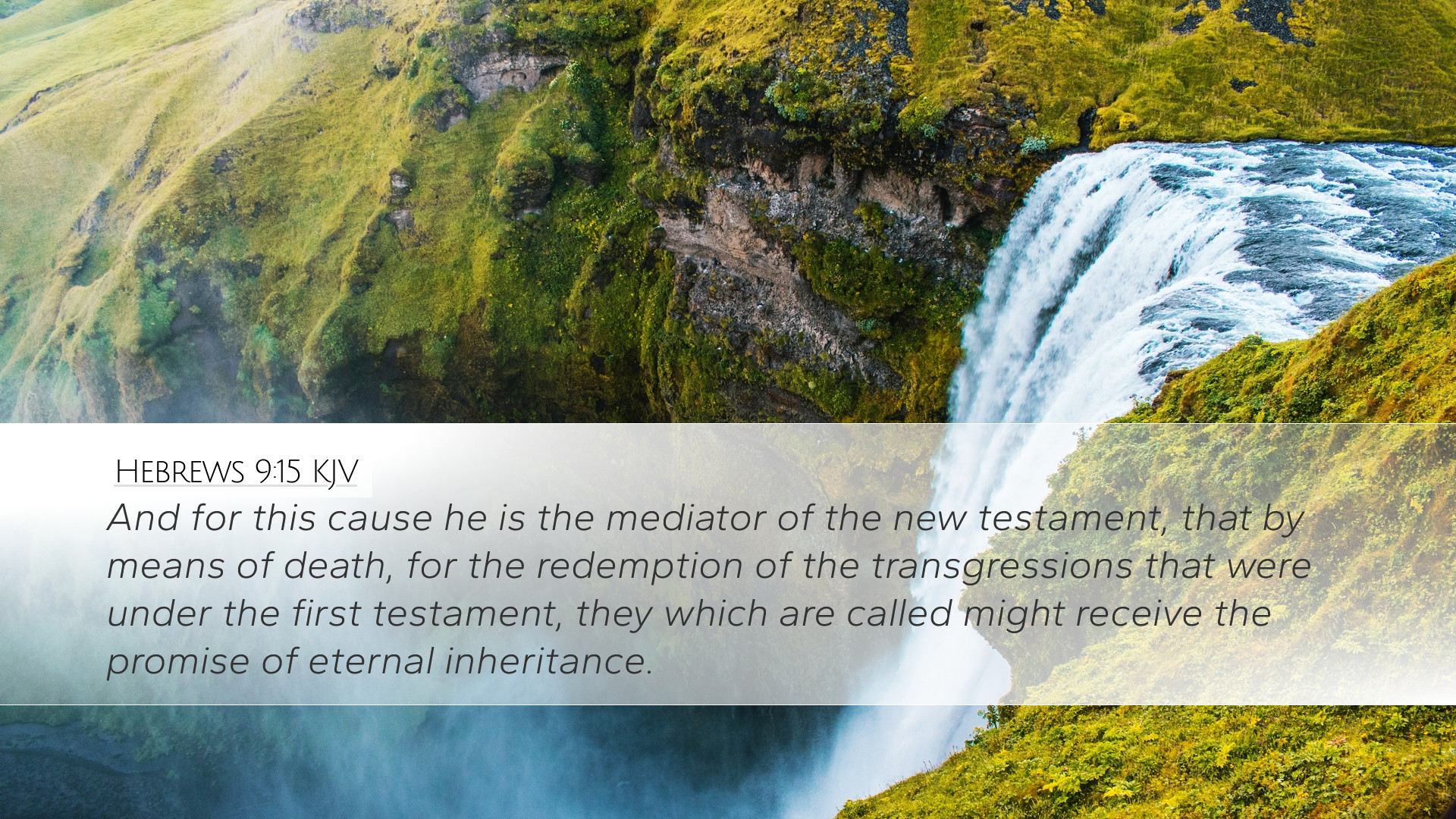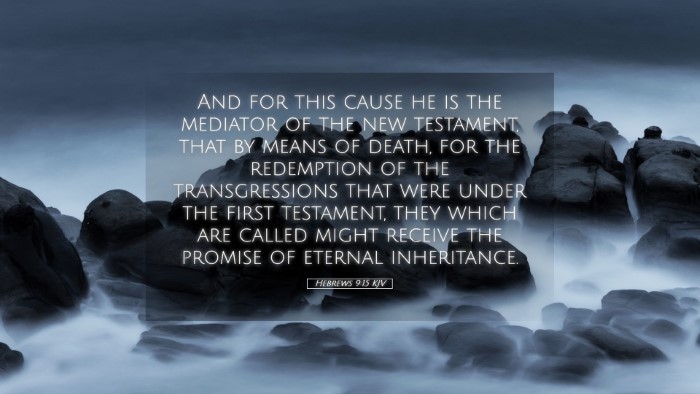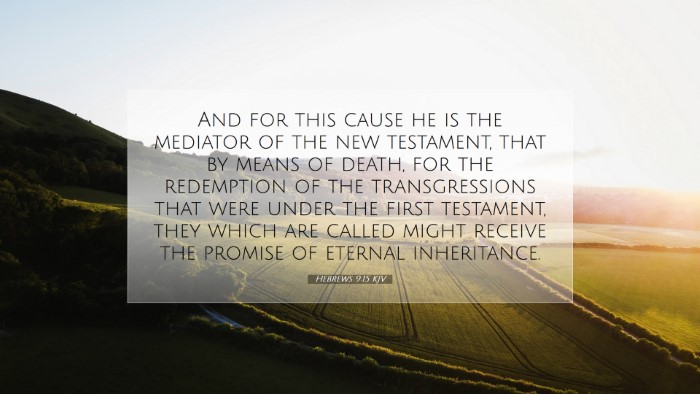Commentary on Hebrews 9:15
Hebrews 9:15 states, "And for this reason He is the Mediator of a new covenant, by means of death, for the redemption of the transgressions under the first covenant, that those who are called may receive the promise of the eternal inheritance." This verse encapsulates the core theological elements of Christ's mediatorial role and the significance of the new covenant. Below is a synthesis of insights from various public domain commentaries.
1. The Necessity of a Mediator
Matthew Henry explains that the role of a mediator is essential when there is a breach or separation between two parties. In the context of Hebrews, humanity's sin created a chasm between God and man, necessitating a mediator. Christ’s death serves not only as the means of mediation but also as the foundation upon which the new covenant stands.
Albert Barnes adds that this mediation signifies Christ’s authority and power to reconcile believers to God. He asserts that the term Mediator indicates a relational dynamic where one party (Christ) serves to bridge the gap and bring about reconciliation, thus facilitating a renewed relationship between God and humanity.
2. The Nature of the New Covenant
Adam Clarke elaborates on the "new covenant" concept, noting that it transcends the Old Covenant established under Moses. This new covenant, ratified by the blood of Christ, offers a more profound, internal transformation. Unlike the old covenant, which required external adherence to the Law, the new covenant emphasizes a relationship marked by faith and the indwelling of the Holy Spirit.
- Transformational Aspect: The new covenant promises an internal change, enabling believers to fulfill God’s laws through the Spirit.
- Universal Call: This covenant extends beyond Israel, inviting Gentiles into the fold as heirs of the promises made to Abraham.
3. Redemption and Forgiveness
Henry captures the essence of redemption highlighted in this verse. Through Christ's death, the transgressions committed under the first covenant, which could not bring full forgiveness, are fully addressed. The sacrifice of Jesus not only acknowledges past sins but also provides a comprehensive answer to the guilt incurred by the Law.
Barnes emphasizes that this aspect of redemption focuses on the removal of sins through Christ's sacrifice. He explains that believers are offered not just forgiveness but a transformation that sets them free from the bondage of sin, which the Law could not achieve.
4. The Promise of Eternal Inheritance
Clarke highlights the phrase "the promise of the eternal inheritance," indicating a future hope that believers look toward. This inheritance is contrasted with the temporal blessings under the Old Covenant, which were often material and national in nature.
- Eternal Perspective: The promise of eternal inheritance is rooted in the believer’s identity in Christ, granting access to God’s eternal kingdom.
- Assurance of Salvation: This inheritance serves as an encouragement to persevere in faith, knowing that it is secured through Christ's mediatorial work.
5. The Implications of the New Covenant
In light of the new covenant, Henry posits that believers are called to live a life that reflects gratitude for this incredible act of grace. This involves not only acknowledging Christ’s sacrifice but also living in a way that embodies faith and obedience to His teachings.
Barnes reinforces this by stating that the new covenant offers a call to holiness. Believers are not merely recipients of grace but are called to respond with a life of righteousness, empowered by the indwelling Spirit.
Conclusion
Hebrews 9:15 serves as a profound reminder of the transformative nature of Christ's sacrifice and the establishment of the new covenant. The insights from the commentaries reveal the depth of meaning behind the terms Mediator, redemption, and eternal inheritance. As we reflect on this passage, we recognize our calling to embrace this new life in Christ, empowered and sustained by His grace.


